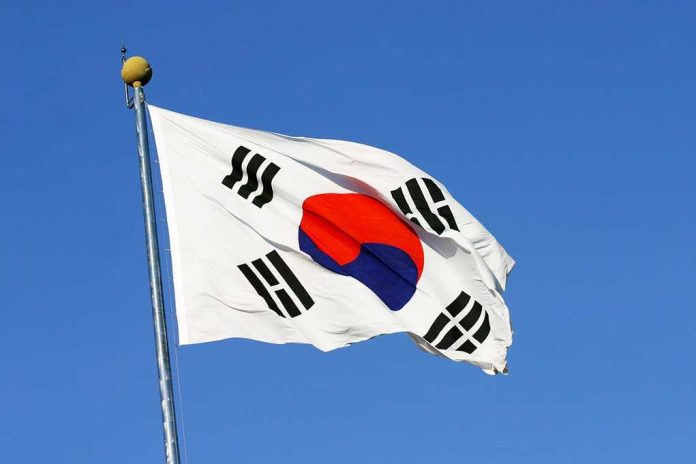
Former South Korean President Yoon Suk Yeol, embroiled in controversy, faces a third indictment for abuses of power during his tumultuous reign, leaving South Korea’s democracy at a crossroads.
At a Glance
- Yoon Suk Yeol indicted on charges of abuse of authority and document fabrication.
- The indictment follows Yoon’s controversial martial law declaration in December 2024.
- Yoon’s actions have sparked political instability and public outrage in South Korea.
- Yoon remains in detention amid ongoing investigations and legal proceedings.
The Martial Law Crisis Unfolds
On December 3, 2024, Yoon Suk Yeol took the unprecedented step of declaring martial law in South Korea, citing threats from political opposition and North Korea. This decision, made privately with Defense Minister Kim Yong-hyun, bypassed the majority of the cabinet. The move shocked a nation already polarized by political tensions, igniting fears of democratic backsliding and executive overreach.
Yoon’s martial law edict targeted media outlets and polling agencies, ordering the cutoff of utilities to suppress dissent. An investigation later unveiled plans to use military force against National Election Commission staff, revealing the extent of Yoon’s efforts to consolidate power. The backlash was immediate, with public protests and legal challenges erupting across the country.
The Ongoing Legal Battle
Yoon’s legal troubles began soon after his arrest in January 2025. The first indictment, issued later that month, accused him of leading an insurrection. A second indictment followed in March, further probing his martial law tactics. On July 19, 2025, the special counsel, led by Cho Eun-suk, indicted Yoon for a third time, charging him with abuse of authority and document fabrication.
The special counsel’s office has been relentless in pursuing justice, detailing how Yoon violated cabinet members’ rights and manipulated official documents to justify his actions. Despite Yoon’s refusal to appear for questioning, the investigation continues, with further evidence collection underway. Yoon remains in detention, a stark reminder of the severity of the charges against him.
The Broader Implications
Yoon’s actions have left a deep scar on South Korea’s political landscape. His martial law declaration and subsequent indictments have intensified political instability, raising questions about the rule of law and executive power. Public trust in government institutions has eroded, with citizens demanding accountability and transparency.
Media freedom, a cornerstone of democracy, has come under threat as Yoon’s regime targeted outlets critical of his administration. The chilling effect on the press has sparked concerns about democratic backsliding, with calls for reforms to protect journalistic independence and civil liberties. The international community watches closely, scrutinizing South Korea’s commitment to democratic norms.
A Turning Point for Democracy
Yoon’s indictment sets a significant legal precedent, challenging South Korea’s democratic institutions to hold a former president accountable for abuses of power. The outcome of this legal battle could reshape the nation’s approach to executive authority, prompting potential reforms to prevent future overreach.
As South Korea grapples with this constitutional crisis, the resilience of its democracy is put to the test. Will the nation emerge stronger, with reinforced safeguards against authoritarianism, or will the scars of Yoon’s tenure linger, undermining public confidence in democratic governance? The world watches, as South Korea charts its course forward.
Sources:
Wikipedia: 2024 South Korean martial law crisis







